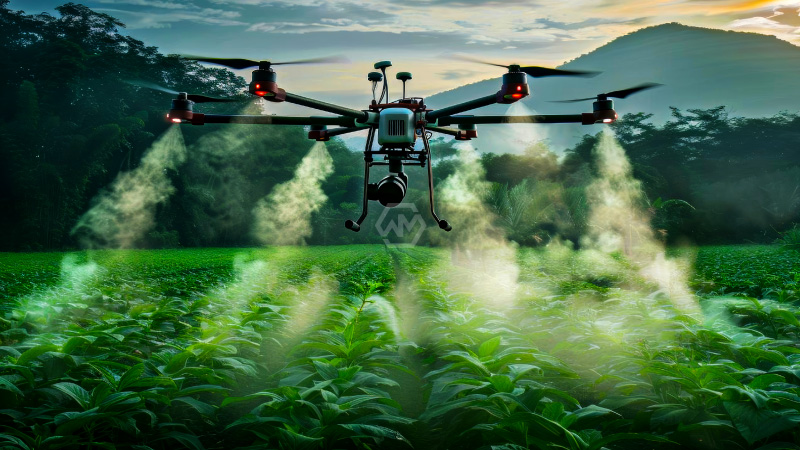- Canadian regulations currently restrict drone use for pesticide spraying to one herbicide, which is for non-crop applications.
- Ongoing research aims to evaluate drone spray patterns against traditional methods to ensure safety and effectiveness.
- Legal challenges and data collection are delaying the approval of broader drone spraying applications.
The legal framework for drone pesticide spraying in Canada is still developing, with current regulations only permitting one herbicide for non-crop use. Despite drones’ growing potential for agricultural tasks, including fertilization and mapping, their use for applying pesticides remains prohibited.
Research efforts are crucial for understanding how drone spray patterns compare to traditional methods. Factors such as wind conditions and drone size are being examined to ensure that drone applications are as effective and safe as conventional methods.
The Future of Drone Spraying in Canada’s Agricultural Sector
While drones are increasingly utilized in agriculture for various tasks, including seed broadcasting and field mapping, their use for pesticide application is limited by current regulations. Only one herbicide has been approved for drone use, and it is intended exclusively for non-crop applications. This limitation highlights the regulatory lag in adapting to new technology.
Ongoing research is essential to evaluate the effectiveness of drone spraying compared to traditional methods. Challenges include assessing spray patterns in varying environmental conditions and ensuring that drones meet safety and performance standards. The complexity of these factors makes regulatory updates slow and meticulous.
The drone industry and agricultural stakeholders are hopeful that research will soon lead to updated regulations. Until then, the use of drones for pesticide application remains illegal, carrying potential fines for unauthorized use.
In summary, while drones offer significant benefits for agriculture, regulatory approval for pesticide spraying is still pending. Continued research and data collection are vital for overcoming the current legal and practical challenges.
“Assessing spray patterns needs to happen in low-wind environments, a tall order in Alberta to be sure, plus there needs to be good data gleaned from the effects of spray patterns in varying environmental conditions.”



